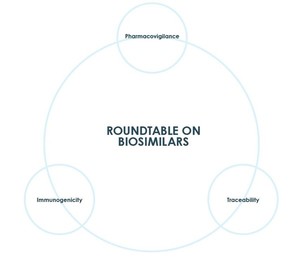On 4 October 2019, the International Society of Oncology Pharmacy Practitioners (ISOPP) issued their global position on the use of biosimilars in cancer treatment and supportive care.
ISOPP’s members include pharmacists practising in a variety of settings who provide clinical pharmacy and/or cytotoxic preparation services for cancer patients. The society aims to advance oncology pharmacy care for patients around the world and its members come from more than 30 different countries.
The position statement aims to provide the global oncology pharmacy community with guidance to support decisions around biosimilar use. The 11 statements cover the regulation and evaluation of biosimilars, practical issues around local implementation, the education of healthcare staff and patients, and the requirement for ongoing pharmacovigilance and outcome monitoring.
The 11 statements cover a multitude of issues surrounding biosimilars, including interchangeability, extrapolation of indications, immunogenicity, naming, education, cost savings and pharmacovigilance.
Statement 1: A biosimilar licensed via national or regional regulatory agencies requiring rigorous pathways for medicine manufacturing and evaluation is considered therapeutically equivalent to the originator biotherapeutic. However, a biosimilar is not considered therapeutically equivalent to other biosimilars of the same originator biotherapeutic.
Statement 2: Biosimilars are not considered interchangeable with originator biotherapeutics and should not be automatically substituted. However, a switchover from an originator biotherapeutic to a biosimilar within institutions or for individual patients is acceptable and encouraged.
Statement 3: Extrapolation of biosimilar data to all clinical indications may occur provided that enough relevant safety and efficacy data exist to support use.
Statement 4: Differences between originator and biosimilar product formulations do not alter clinical efficacy, but may enhance immunogenicity or intolerability risks. Inactive components should be reviewed for each biosimilar product before use.
Statement 5: Partial implementation of a biosimilar, or institutional use of multiple biosimilars, may need to be considered as appropriate for the healthcare institution or patient populations served.
Statement 6: Adherence to best practice guidelines on the storage and labelling of biosimilar products will reduce the risk of selection error. In the absence of best practice guidelines, universal naming guidelines should be applied to support biosimilar tracking and pharmacovigilance.
Statement 7: Multidisciplinary groups should guide the safe, effective and fiscally appropriate institutional use of biosimilars.
Statement 8: Staff education on biosimilars should reference published, evidence-based and peer-reviewed literature whenever possible. Educational materials should be updated and reviewed on an ongoing basis.
Statement 9: Patients should be educated about biosimilars with resources that are evidence-based and tailored to patient demographics and health literacy. Such resources should be publicly available and adaptable to reflect the target population’s needs.
Statement 10: Institutional cost savings made through the use of biosimilars should be used to keep patient costs manageable and to stabilise budgets in order to maximise the number of patients served.
Statement 11: Pharmacovigilance and patient-outcome monitoring are integral to the safe and effective use of biosimilars in different populations and indications.
ISOPP says that it ‘is committed to supporting the use of biosimilars’ and has developed these ‘standards’ ‘to assist institutions to introduce biosimilars into their practice safely and successfully’. However, despite the potential cost-saving opportunities, they also point out that the introduction of biosimilars ‘poses a set of challenges, which varies across nations’. These, according to ISOPP, include ‘the absence of government regulations guiding biosimilar use, difficulties with the interpretation and extrapolation of clinical data, the lack of education of patients and clinicians, and the need for ongoing pharmacovigilance and post-implementation monitoring’.
Related articles
ASCO issues position statement on biosimilars in oncology
European oncologists back biosimilars with position paper
Permission granted to reproduce for personal and non-commercial use only. All other reproduction, copy or reprinting of all or part of any ‘Content’ found on this website is strictly prohibited without the prior consent of the publisher. Contact the publisher to obtain permission before redistributing.
Copyright – Unless otherwise stated all contents of this website are © 2019 Pro Pharma Communications International. All Rights Reserved.








 0
0











Post your comment